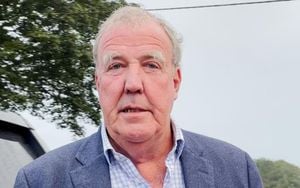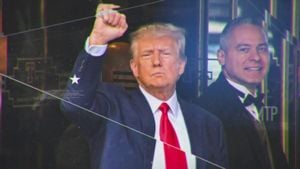The legal scene around Donald Trump is buzzing lately as special counsel Jack Smith turns his focus to winding down two significant federal cases against the former president. This development arises against the backdrop of legal interpretations which suggest sitting presidents cannot be prosecuted, raising questions about how Smith's team will navigate the upcoming election period.
Last year, Trump was indicted for allegedly plotting to overturn the outcome of the 2020 election and for holding onto classified documents after his presidency. With the recent announcement of Kamala Harris as the next Democratic nominee against Trump, lawmakers are wrestling with the idea of whether Trump should still face prosecution. According to political analysts, Justice Department guidelines dating back decades create legal hurdles against prosecuting a sitting president. This complicates matters as Trump relatively quickly grabs at potential immunity arguments.
By aiming to conclude these cases before January’s inauguration, Smith’s team seems to wish to sidestep any future conflicts with Trump, who has previously indicated he would fire Smith if elected. This layer of strategy is aimed at preventing potential showdowns during Trump’s potential return to the Oval Office.
The two active cases against Trump comprise charges related to his alleged conspiracy to overturn the results of the last election. These legal troubles were amplified by the notorious Capitol riots and continued attempts by Trump to subvert election results. One particularly notable legal challenge involving classified documents has stalled since the dismissal of the case by Judge Aileen Cannon—appointed by Trump—questioning the legality of Smith’s appointment.
This development means Smith is now appealing to the 11th US Circuit Court of Appeals. On another front, the election interference case against Trump was slated for trial next March but has been hampered by Trump’s broader claims of immunity as the case is now tangled up before the Supreme Court. Observers are on the lookout for Judge Tanya Chutkan's next moves, especially after the Supreme Court granted former presidents immunity from prosecution for acts taken within their presidential capacity.
Following the July ruling from the Supreme Court, Trump’s legal team is resting their hopes on obtaining dismissals based on immunity claims. Judge Chutkan has to decide which allegations, if any, can advance. Meanwhile, Smith’s charges continue to hang over Trump like dark clouds. A comprehensive brief addressing evidence filed last month aims to ring-fence Trump’s actions before he became commander-in-chief.
On the New York side of things, Trump's fight against felony convictions for allegedly manipulating business records related to hush money payments persists. He faces both potential fines and prison time, and Judge Juan M. Merchan’s expected ruling on accepting or dismissing the verdict is closely monitored. The upcoming decisions could heavily impact the legal positioning of Trump and the procedural pathways of his current trials.
Interestingly, even with the marching order to wind down federal cases, it exists within the broader backdrop of Trump’s entangled legal issues. One key aspect is the political reinvigoration Trump might experience following his recent election win. His victory could raise new challenges for cases like the one pending against him concerning election interference efforts down Georgia way.
While the road looks rocky for Trump, the curtain certainly hasn't fallen just yet. Legal experts suggest many hurdles remain, and echo sentiments surrounding the possibility of lengthy appeals. Such legal maneuverings may prolong trial dates effectively creating delays extending over the next year or more.
What remains clear is not just the stakes involved for Trump moving forward, but the tearing threads binding the fabric of legal frameworks with political tides. Since Trump's former presidency remains enveloped with strife, and as the national political scene shifts, upcoming judicial rulings will not only define Trump's path but also reverberate through America’s political discourse.
All eyes now turn to the courts as the drama continues, and uncertainty looms over how judicial interpretations will play out with the impending change of guard.



